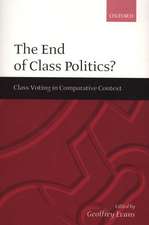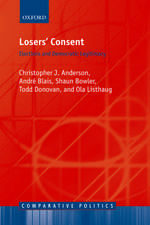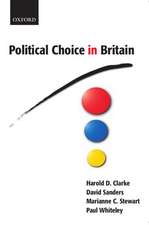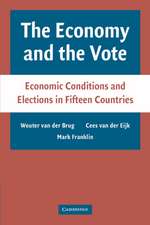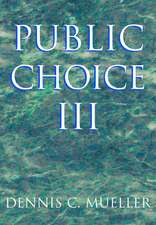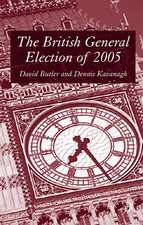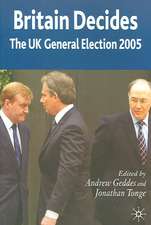News Verdicts, the Debates, and Presidential Campaigns
Autor James Bernstein, William Elliott, James Lemert, Karl Nestvold, William Rosenbergen Limba Engleză Hardback – 29 oct 1991 – vârsta până la 17 ani
Preț: 440.87 lei
Preț vechi: 709.51 lei
-38% Nou
Puncte Express: 661
Preț estimativ în valută:
84.37€ • 87.55$ • 70.52£
84.37€ • 87.55$ • 70.52£
Carte tipărită la comandă
Livrare economică 17-31 martie
Preluare comenzi: 021 569.72.76
Specificații
ISBN-13: 9780275937584
ISBN-10: 0275937585
Pagini: 312
Dimensiuni: 156 x 235 x 30 mm
Greutate: 0.69 kg
Editura: Bloomsbury Publishing
Colecția Praeger
Locul publicării:New York, United States
ISBN-10: 0275937585
Pagini: 312
Dimensiuni: 156 x 235 x 30 mm
Greutate: 0.69 kg
Editura: Bloomsbury Publishing
Colecția Praeger
Locul publicării:New York, United States
Notă biografică
JAMES B. LEMERT is Profesor and Journalism Graduate Studies Director at the University of Oregon. He is the author of two previous books, Does Mass Communication Change Public Opinion After All? (1981) and Criticizing the Media: Empirical Approaches (1989), and dozens of research articles. Dr. Lemert teaches courses in public opinion, journalists' craft attitudes, and mass communication theory.WILLIAM R. ELLIOTT is Associate Professor and Head of Graduate Studies in Journalism at Southern Illinois University at Carbondale. He is the author of numerous journal articles and papers on media influences on the political process. Dr. Elliott teaches courses in mass communications theory, research methods, and theory construction.JAMES M. BERNSTEIN is Assistant Professor of Journalism at Indiana University. He currently teaches courses in broadcast journalism, public opinion, and the media as social institutions. Dr. Bernstein's research interests include public opinion, political communication, and television and politics.WILLIAM L. ROSENBERG is Associate Professor and Director of the Drexel University Survey Research Center. He has presented many papers and has authored numerous articles on politics and communication. In addition to serving as a media analyst during election campaigns, as well as a research consultant for local, state and national agencies, Dr. Rosenberg teaches courses in political communication, public opinion and propaganda, and research methods.KARL J. NESTVOLD, Professor and Associate Dean, is Head of the Broadcast News Sequence, School of Journalism, University of Oregon. Dr. Nestvold's research interests include the FCC theory of diversity, television news and public affairs, broadcasting in Great Britain, and the Soviet Union's external information programs.
Cuprins
PrefaceIntroductionStudy Design and RationaleNetwork Television News Coverage of the Debates, 1976 to 1988Candidate Verdicts in Post-Debate Analysis ProgramsJournalists and the Idea of Presidential DebatesThe First Bush-Dukakis Debate: Face-To-Face ContactThe Quayle-Bentsen Debate: A Verdict Effect?The Final Presidential Debate: October 13, 1988Debates in the Eyes of the AudienceThe Audience Responds to "Attack" AdsDebates in the Context of the Rest of the CampaignAppendixBibliographyIndex


